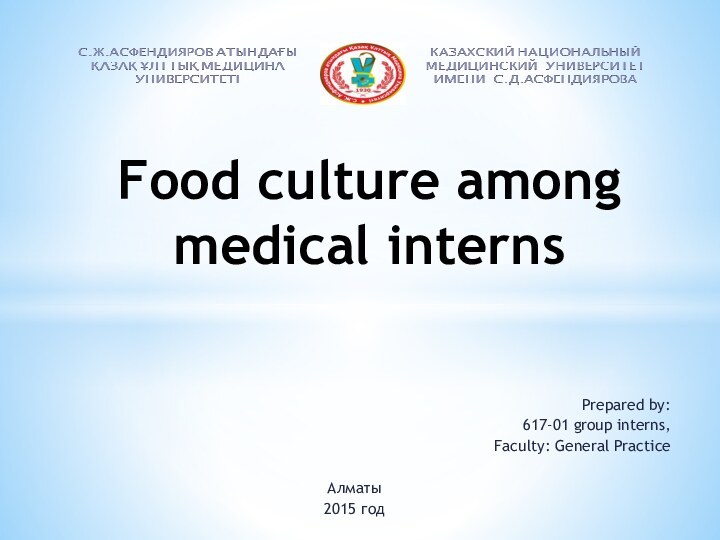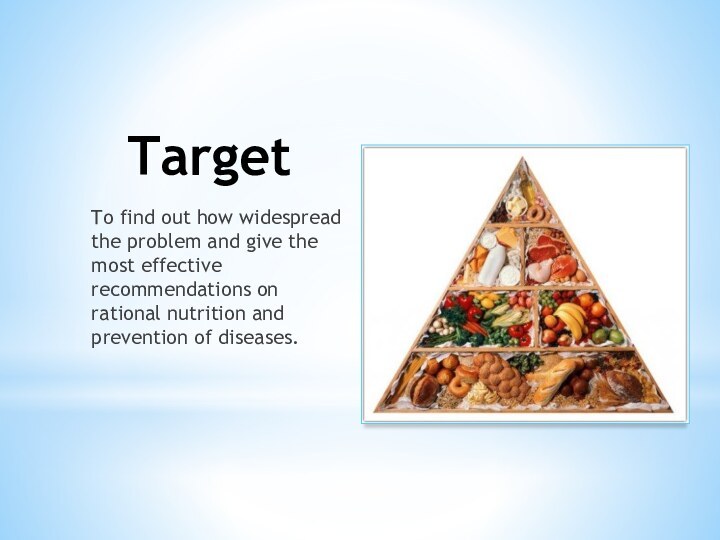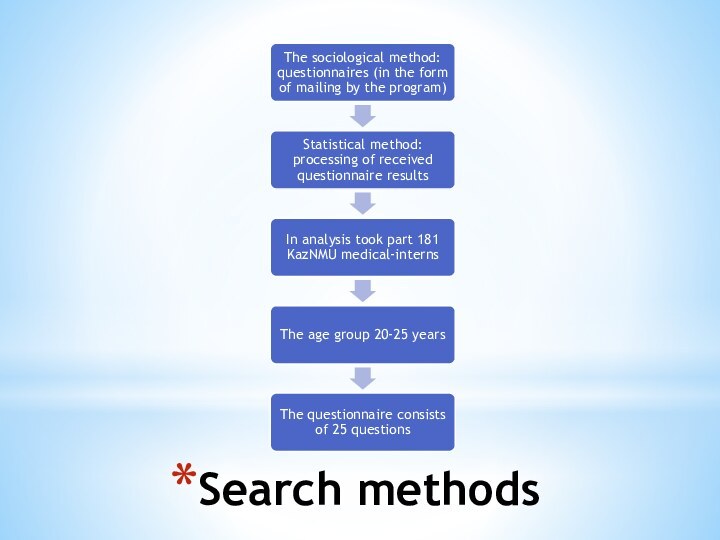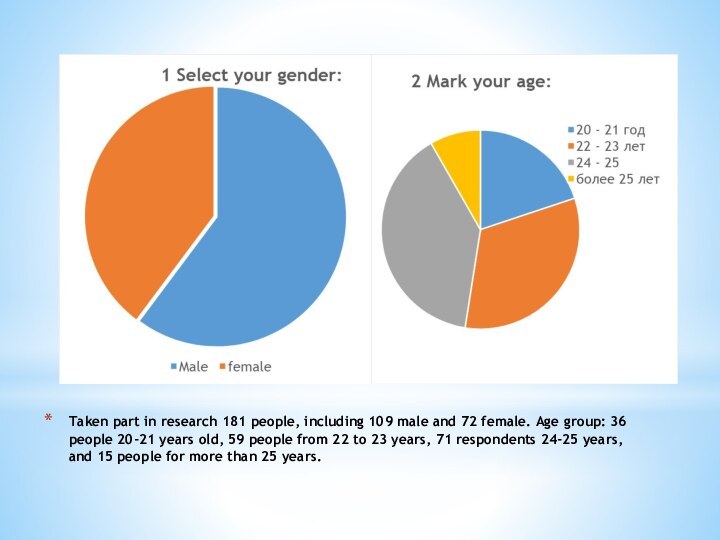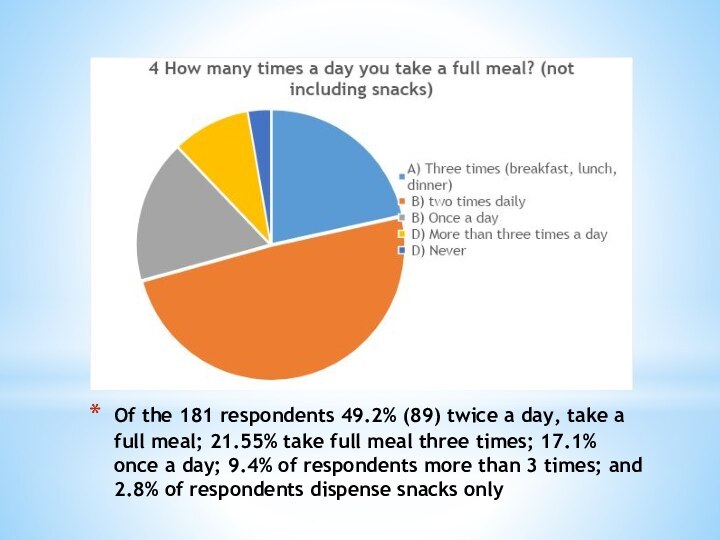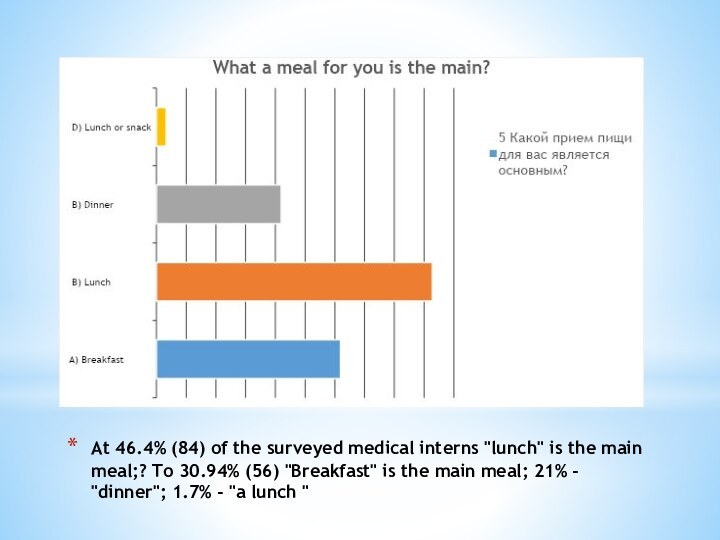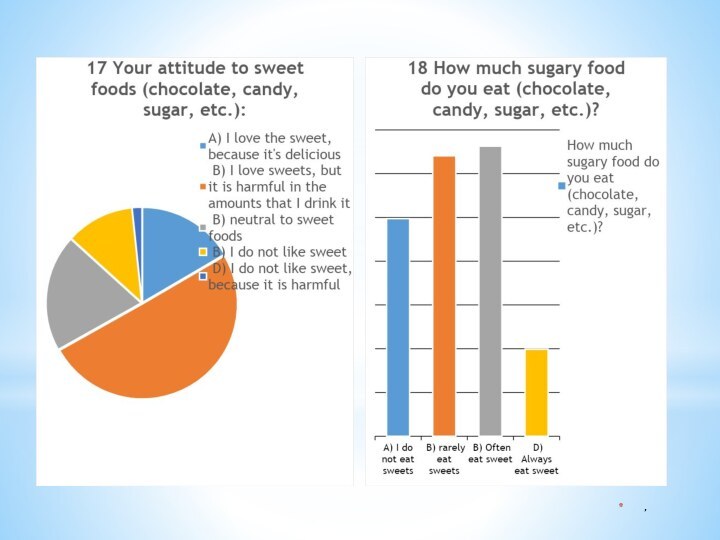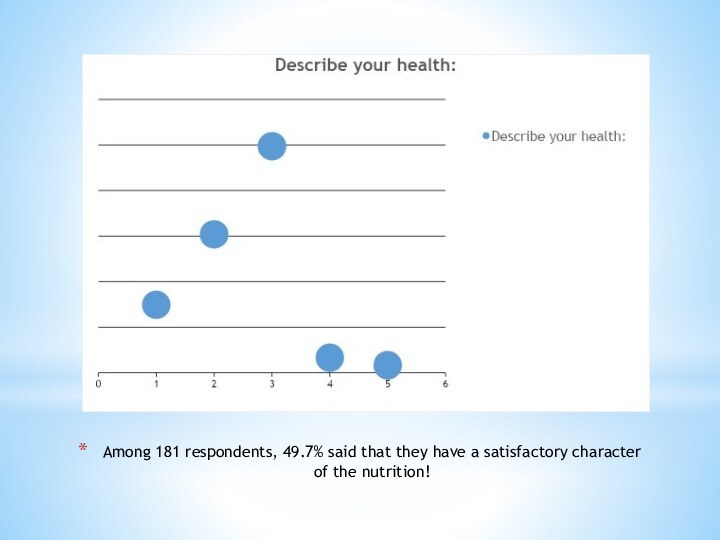Слайд 2
Background
The relevance of the chosen topic is that,
unfortunately, many students and medical interns don’t observe the
most elementary, science-based rules of a healthy lifestyle.
Today the food services industry turned into an industry that is based on industrial technologies. And, due to the high level of contemporary life and social activity, many people become users of this industry. This is at odds with the concept of a healthy rational nutrition.
The main damage to of irrational nutrition is that such foods results in a number of diseases. Gastritis, gastric ulcer, problems with the gastrointestinal tract, cellulite, hypertension, obesity, increased risk of developing type 2 sugar diabetes in adults, increasing the risk of blood pressure, which increases the risk of atherosclerosis, coronary heart disease and related complications in the form of a heart attack and stroke.
Слайд 3
Target
To find out how widespread the problem and
give the most effective recommendations on rational nutrition and
prevention of diseases.
Слайд 6
Taken part in research 181 people, including 109
male and 72 female. Age group: 36 people 20-21
years old, 59 people from 22 to 23 years, 71 respondents 24-25 years, and 15 people for more than 25 years.
Слайд 7
So we found from a total of 181
people Do you think your nutrition healthy? 79 (43.6%)
of respondents believe that they are not healthy (not a balanced diet)! 36.46% answered "yes", 19.9% of respondents did not know whether their food is healthy.
Слайд 8
Of the 181 respondents 49.2% (89) twice a
day, take a full meal; 21.55% take full meal
three times; 17.1% once a day; 9.4% of respondents more than 3 times; and 2.8% of respondents dispense snacks only
Слайд 9
At 46.4% (84) of the surveyed medical interns
"lunch" is the main meal;? To 30.94% (56) "Breakfast"
is the main meal; 21% - "dinner"; 1.7% - "a lunch "
Слайд 10
Among 181 respondents 104 (57.46%) most commonly
eat at home!
Слайд 21
Among 181 respondents, 49.7% said that they have
a satisfactory character of the nutrition!
Слайд 22
Conclusions
In the normal course of life, we forget

to eat without getting the necessary vitamins and minerals
from food and therefore we tend to get our sorrows from our poor lifestyle choices. A balanced diet is important for everyone, especially for a young body.
The results of this study the doctors showed that 79 (43.6%) of respondents believe that they are not healthy (not a balanced diet)! 49.2% (89) twice daily take full meal! Most doctors try to eat at home most commonly 57.46% (104). The largest amount of food a person eats per day during lunch 46.4% (89) Most of the medical interns try to stick to proper diet, of 181 medical interns surveyed 148 (81.77%) think fast food harmful, because they understand it the negative impact on health.Большинство интернов любят острую 47,51% и сладкую пищу 50,3%, но понимают ее вредность и соответственно стараются ограничить их количество.
Most interns interviewed, few complain of heartburn, bloating, 34.8% (63), flatulence 38.8% (72), etc.
After the survey, analyzing the data, we realized that many of the students are well informed on the issues of healthy eating, this can be judged on certain questions in the questionnaire: 28.7% of interns try not to eat fatty foods and try to 35.9% eat in moderation.
From all this it can be concluded that students, despite his fragile regime of the day, frequent stress, irregular meals, try to maintain a healthy diet and limit the consumption of harmful products.
Слайд 23
Some advice on nutrition!
Eat a variety of foods

from all the food groups every day.
Remember! No food
is absolutely "good" or completely "bad."
Balance the use of food and products from various groups.
Maintain a healthy body weight, adjusting the amount of food intake and increasing physical activity.
Eat small portions.
Eat regularly without major interruptions.
Do not give up just for you from unwanted foods, reduce its amount. Change your diet gradually.
Eat more foods rich in fiber (fruits, vegetables, bread and other cereal products and cereals).
Limit fat intake. Choose foods low in fat.
Try to prepare foods without fat or with the least possible adding it.
Limit intake of pure sugar.
Limit consumption of salt.
Avoid drinking alcohol.
The recommendations do not contain categorical appeals to stop the consumption of some foods, nutrients, or, on the contrary, offer only one kind of food. The essence of recommendations - a balanced food restriction of one type or another to increase the consumption depending on the role of individual components in the prevention or, conversely, to increase the risk of chronic diseases. Of course, these recommendations help to ensure the need for nutrients and energy, i.e, meet the requirements of a balanced diet.
